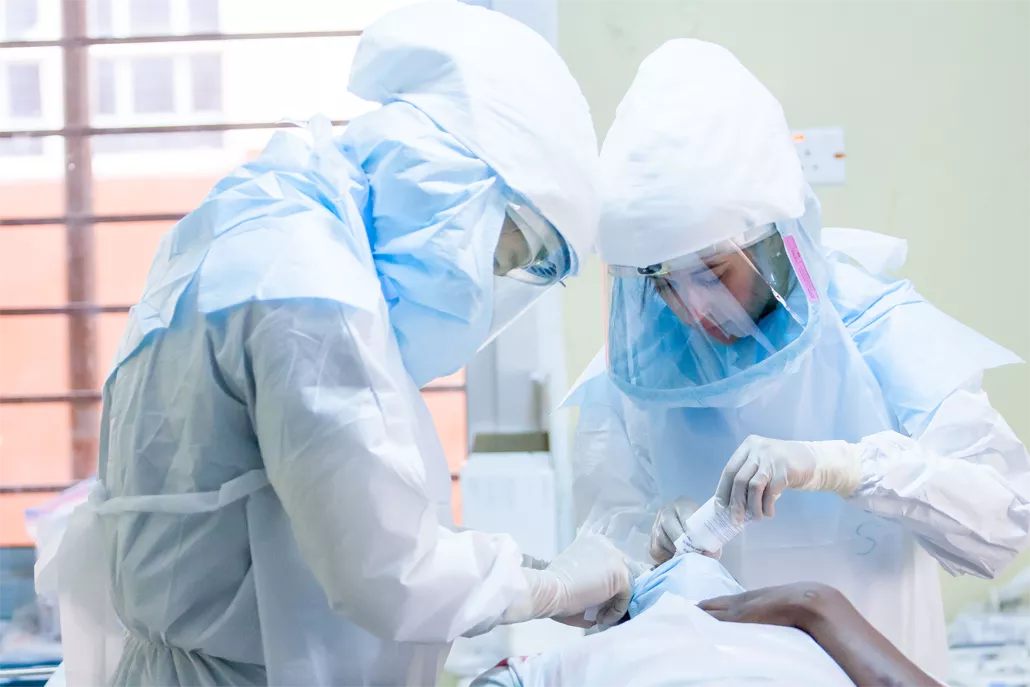Ebola Research at Kissy
One of the most frightening epidemics in the early 21st century has been the Ebola virus. It began in December 2013 with the death of a two-year-old boy in Guinea. The last confirmed case was reported in Sierra Leone on January 2016. During this two-year epidemic, 28,000 people were infected and 11,300 died.
Those that did survive Ebola often faced subsequent complications. In addition to joint stiffness, hearing loss, hair loss, fatigue, and sexual dysfunction, 30 to 50% of Ebola survivors developed eye disease – the most serious of which is uveitis, a form of eye inflammation which lead to cataracts, glaucoma, retinal detachment, and even blindness.
Collaboration with Emory University and the University of Nebraska
In the fall of 2014, Dr. Steven Yeh and Dr. Jessica Shantha of Emory University Hospital were presented with a new discovery about the side effects of the Ebola virus. The patient, Dr. Ian Crozier, had contracted Ebola while treating patients in Kenema, Sierra Leone. Nine weeks after being declared “blood-free” of Ebola, he developed inflammation in his left eye. Testing revealed that the Ebola virus was the cause of his uveitis and he was successfully treated with medications including corticosteroids.
Soon, the finding that the virus could be present in the eye after more than two months of being “Ebola free” circled the globe. Dr. Yeh and Dr. Shantha determined that it was imperative to research how long the Ebola virus can persist in bodily tissue and organs and reached out to Dr. Lowell Gess to ask if the Kissy Eye Hospital could be their in-country research facility.
The research program established by Emory University at Kissy has been at the forefront of treating uveitis, and assistance for medicine, equipment, and hospital facilities is urgent. The hospital is designating a Zeiss operating microscope and Haag Streit slit lamp, but additional equipment such as sterilizers, OCT machine, instruments, fluorescein equipment, indirect microscope, medicine, and supplies are needed.

